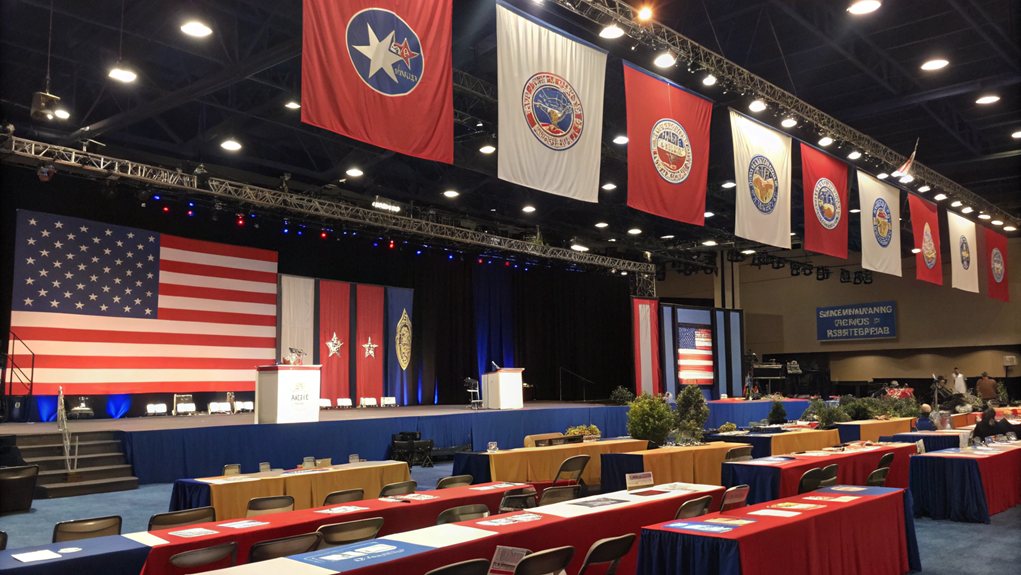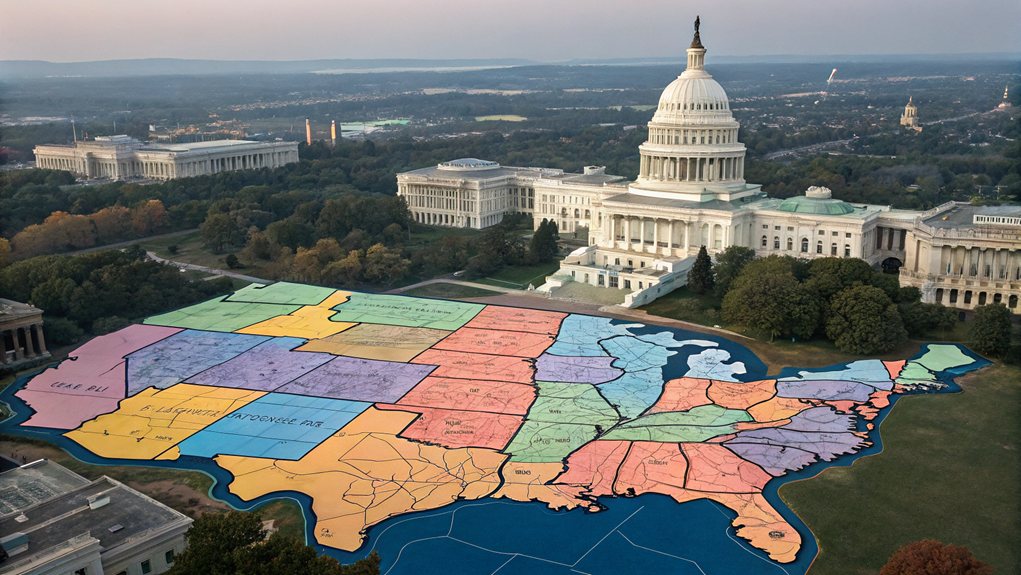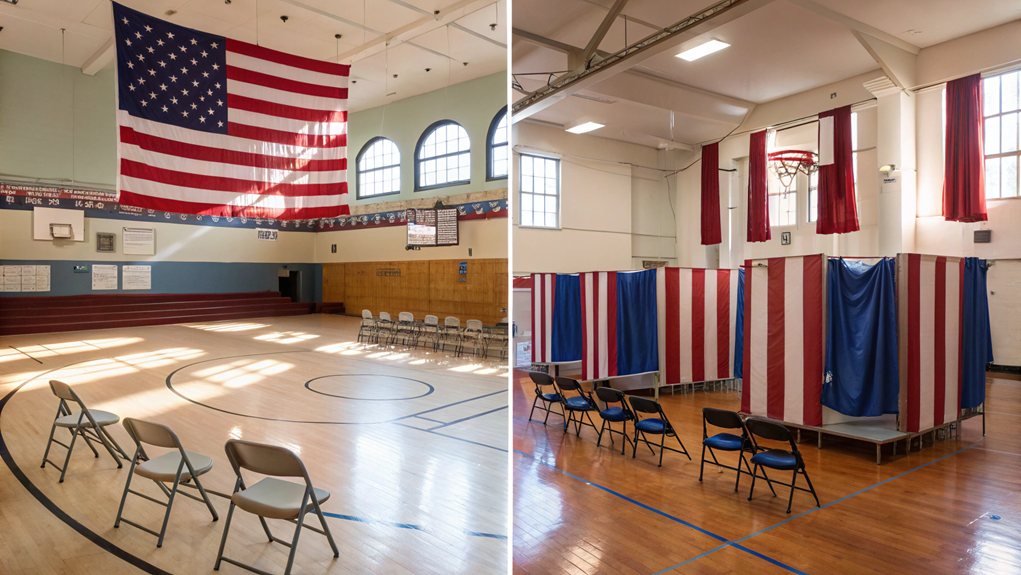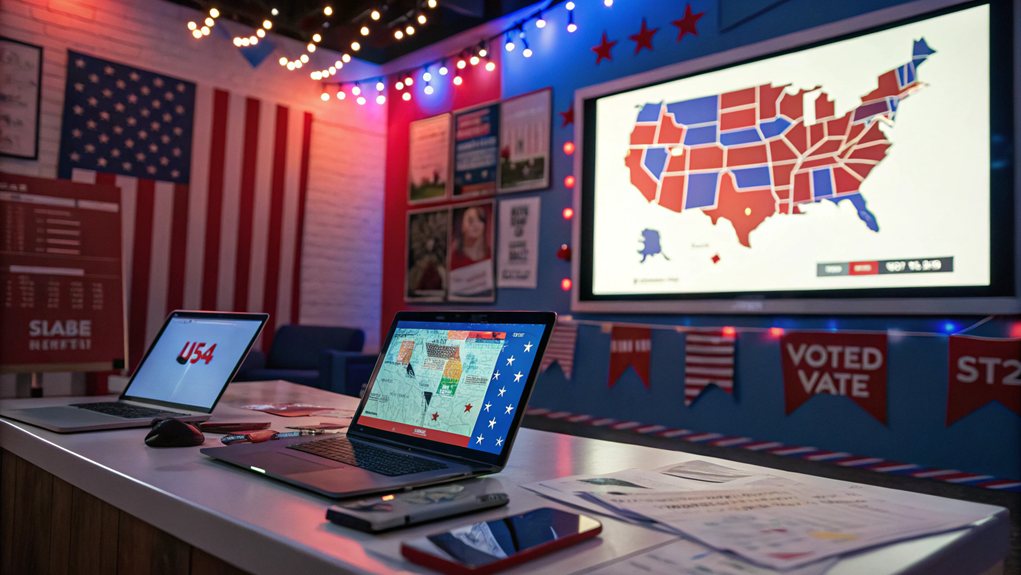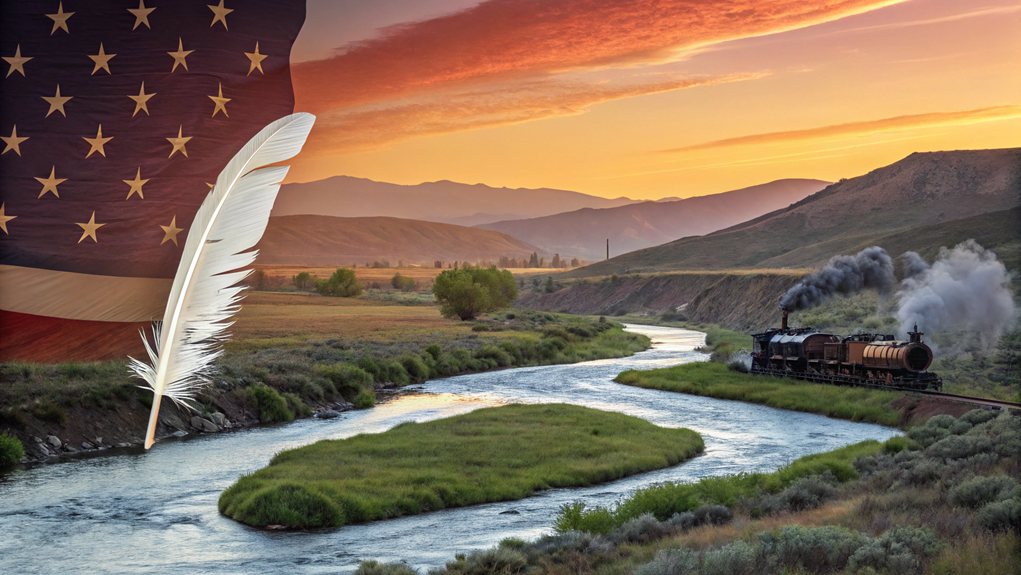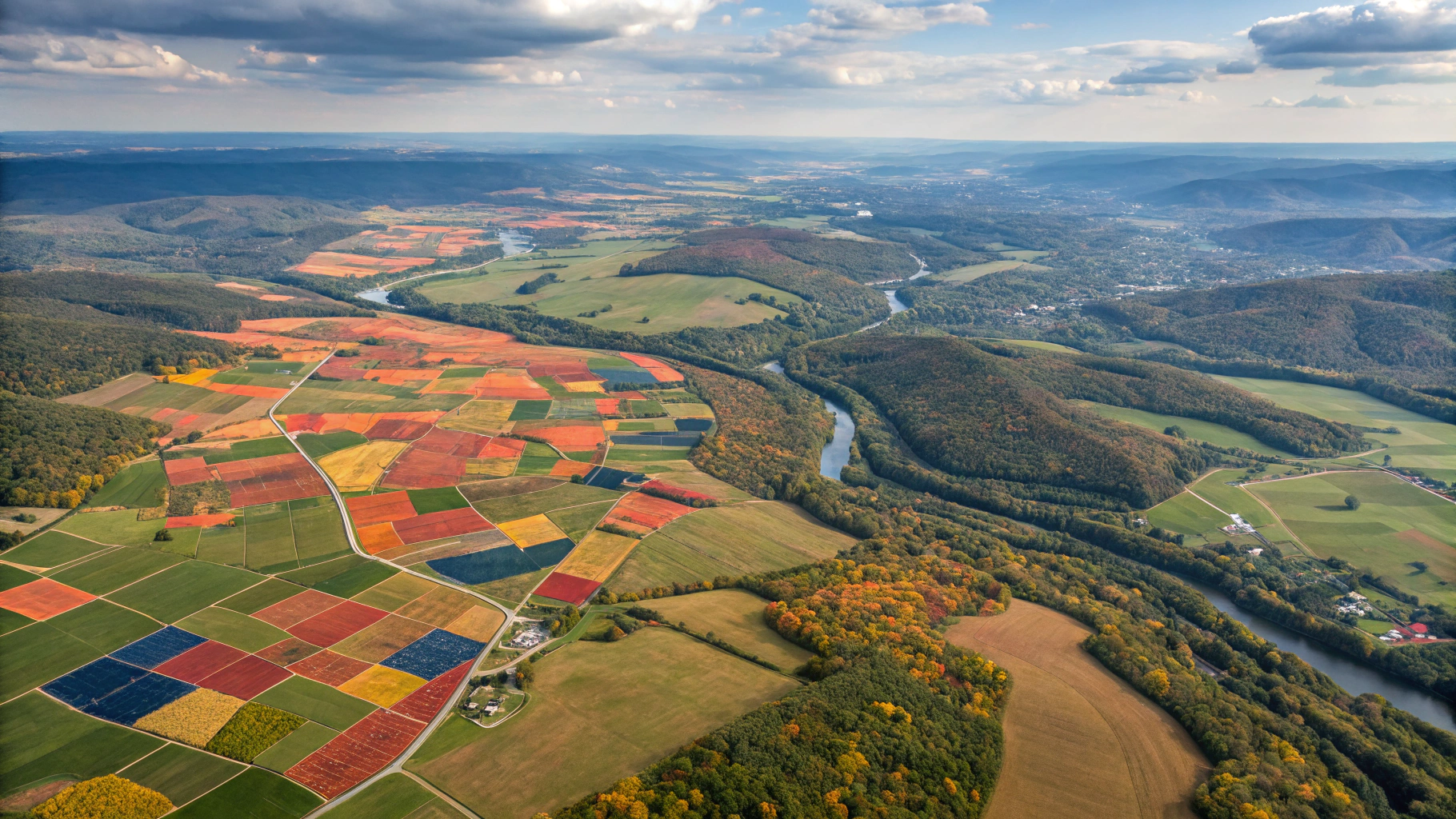Political conventions are the big show in American politics, where party members gather to officially nominate their presidential candidates. It's a mix of pledged delegates who must stick to primary results and unpledged superdelegates, who can do whatever they want. Roll calls create tension, and a majority is needed—or else you might end up in a brokered convention mess. Conventions set party platforms and steal headlines, pulling in public interest. Stay tuned; there's more to chew on!
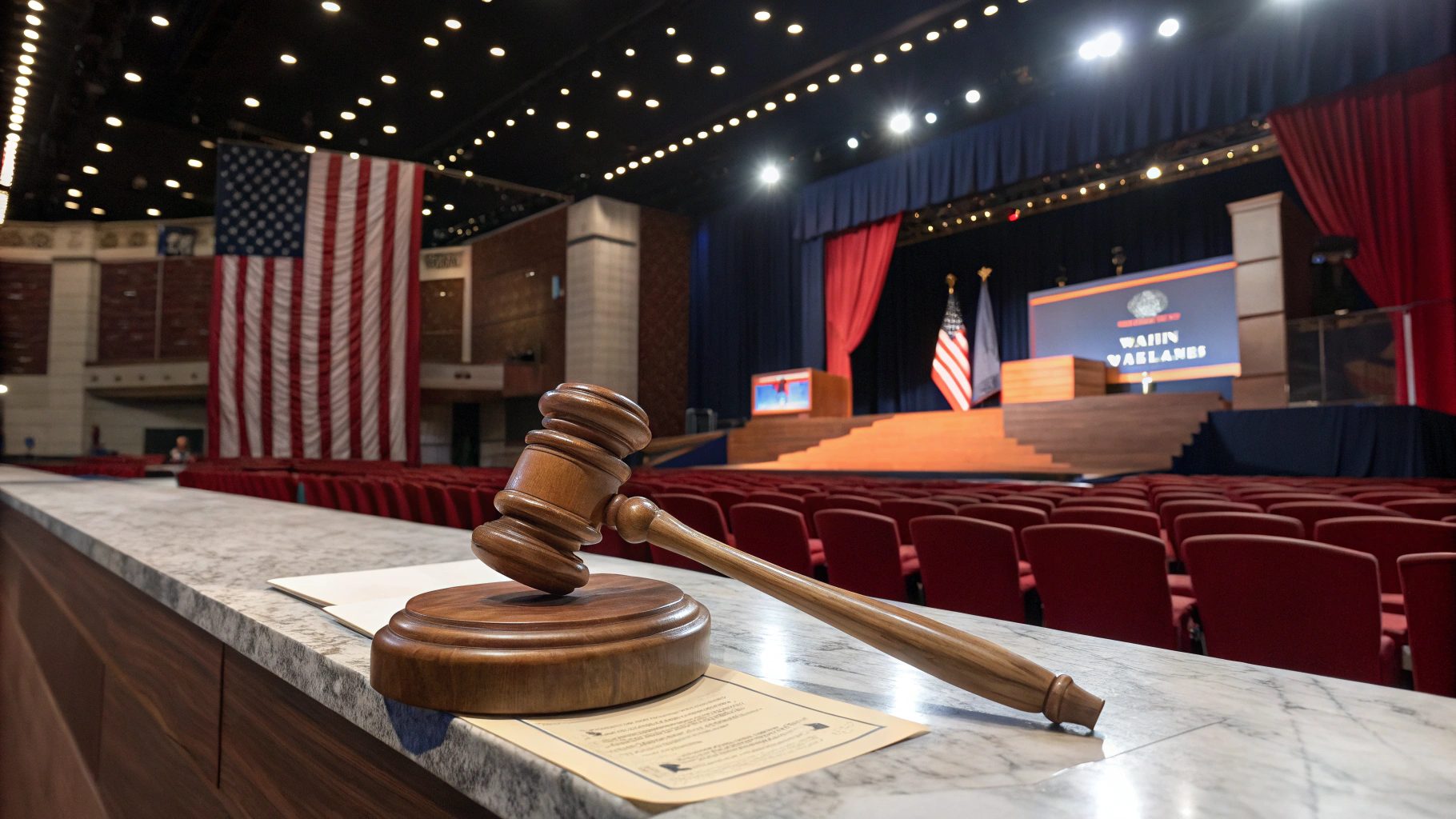
Political conventions, whether one loves them or loathes them, play an important role in the American political landscape. They are the grand arenas where presidential and vice-presidential nominees are officially chosen. It's a spectacle, really. Every four years, summer rolls around, and the political drama unfolds. Delegates from all over the country gather, representing their states, ready to cast their votes based on primary outcomes. And let's be real—it's a bit like a high-stakes game of musical chairs.
Delegates come in two flavors: pledged and unpledged. Pledged delegates must support candidates based on primary results. Unpledged delegates—those cheeky superdelegates—can throw their votes wherever they please. The allocation of these delegates is a complex process, often requiring a state-by-state breakdown. Some states opt for proportional allocation, while others might have their unique methods. It's all a bit of a mess, but that's politics for you.
Delegates come in two types: pledged, who follow the votes, and unpledged superdelegates, who can do as they please—welcome to the chaos of politics!
When the voting kicks off, it's all about roll call. States announce their delegate counts in alphabetical order, and the first round usually sees pledged delegates sticking to their guns. If no one emerges with a majority, things get spicy. Enter the brokered convention, where political negotiations take center stage. A convention is contested if no candidate has a majority of delegates, and history is littered with such conventions, like the infamous 1924 Democratic Convention, where chaos reigned supreme.
As delegates hash it out, party platforms are solidified. Conventions adopt these platforms to outline the party's core principles and goals. It's a chance for parties to rally their troops and showcase unity. That unity is significant. Conventions stir up a sense of connection before the general election, and hey, they often give the nominee a nice bump in the polls. Additionally, the presidential nomination process is crucial, as it formally selects the party's candidate for the upcoming election.
In the end, conventions are about more than just nominations. They are a stage for candidates to shine and for parties to broadcast their agendas. It's a wild ride, and everyone's eyes are glued to the screen. After all, it's politics—where the drama never really stops.
Frequently Asked Questions
How Do Delegates Get Selected for Political Conventions?
Delegates for political conventions are chosen through either primaries or caucuses.
Primaries? Voters pick their candidates, and delegates are doled out based on those results.
Caucuses? Picture a bunch of party loyalists huddling together, arguing about who's best.
Delegates come in two flavors: pledged, who have to stick to their candidate, and unpledged, who can play favorites.
It's like a popularity contest, but with a lot more rules and fewer snacks.
What Is the History of Political Conventions in the U.S.?
Political conventions in the U.S. have a wild history. They started in 1831, thanks to the Anti-Masonic Party—yes, that was a thing.
Before that, party bigwigs picked nominees behind closed doors. Fast forward to the 1970s, and primaries took over, kicking out the bosses.
Conventions are still around, though. They may seem like a formality now, but they're a spectacle, full of drama, speeches, and attempts to unite the party. Who doesn't love a good show?
Can Independent Candidates Participate in Political Conventions?
Independent candidates? Nope, they can't crash the political convention party.
These folks don't need a party's blessing, but that means they miss out on the whole convention scene. No delegates, no nominations, just a lot of signature collecting.
Sure, they can shout from the sidelines, but they're not taking the stage. It's all about the major parties for those convention vibes.
Independent? Good luck finding a platform.
What Impact Do Conventions Have on Voter Turnout?
Conventions can shake things up when it comes to voter turnout.
Sometimes they boost local interest, energizing the crowd. Other times, they fizzle out, leaving people yawning.
Local media coverage? Sure, that can help, but it's not always a game changer.
Depending on the area and party vibes, the effects can be hit or miss.
How Has Technology Changed Political Conventions Over Time?
Technology has turned political conventions into high-tech spectacles. From telegraphs to live streaming, it's been a wild ride.
Candidates now tweet their every thought, bypassing traditional media like it's a bad date. Sure, social media connects them with voters, but it also spreads misinformation like confetti.
Add in data analytics and virtual reality, and you have a convention that's part show, part strategy session.
Welcome to the future—or maybe just a tech circus.
